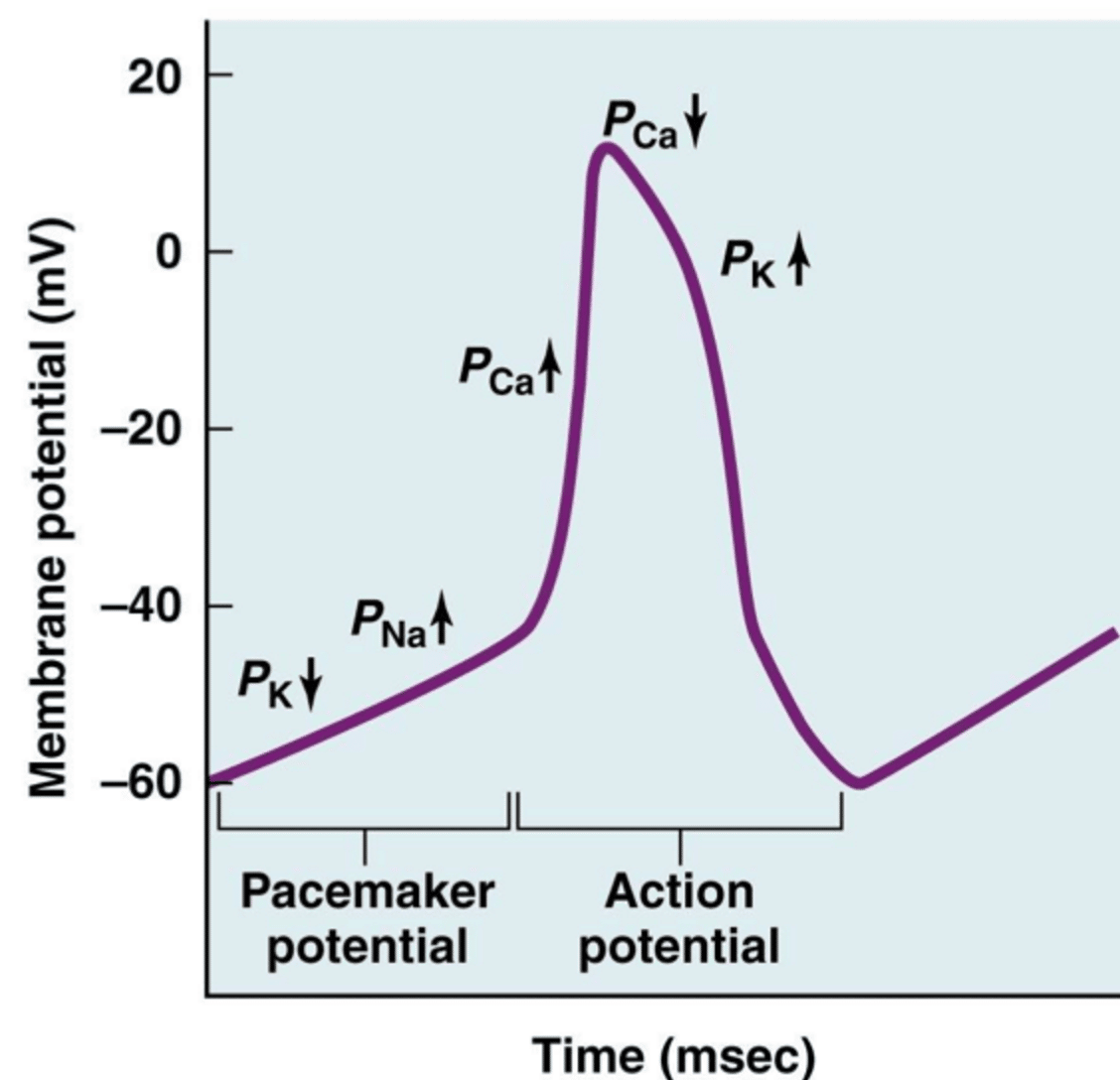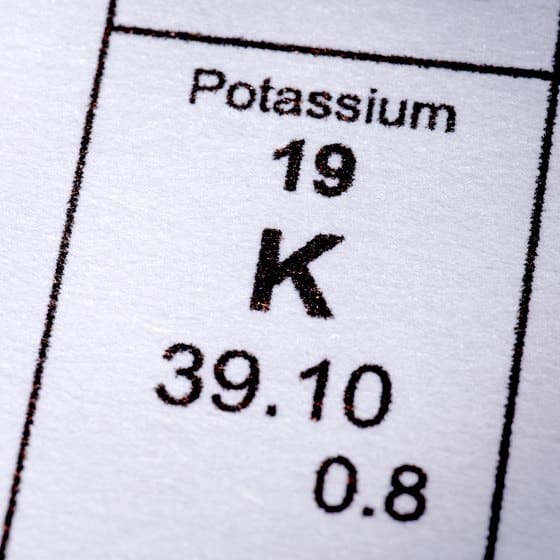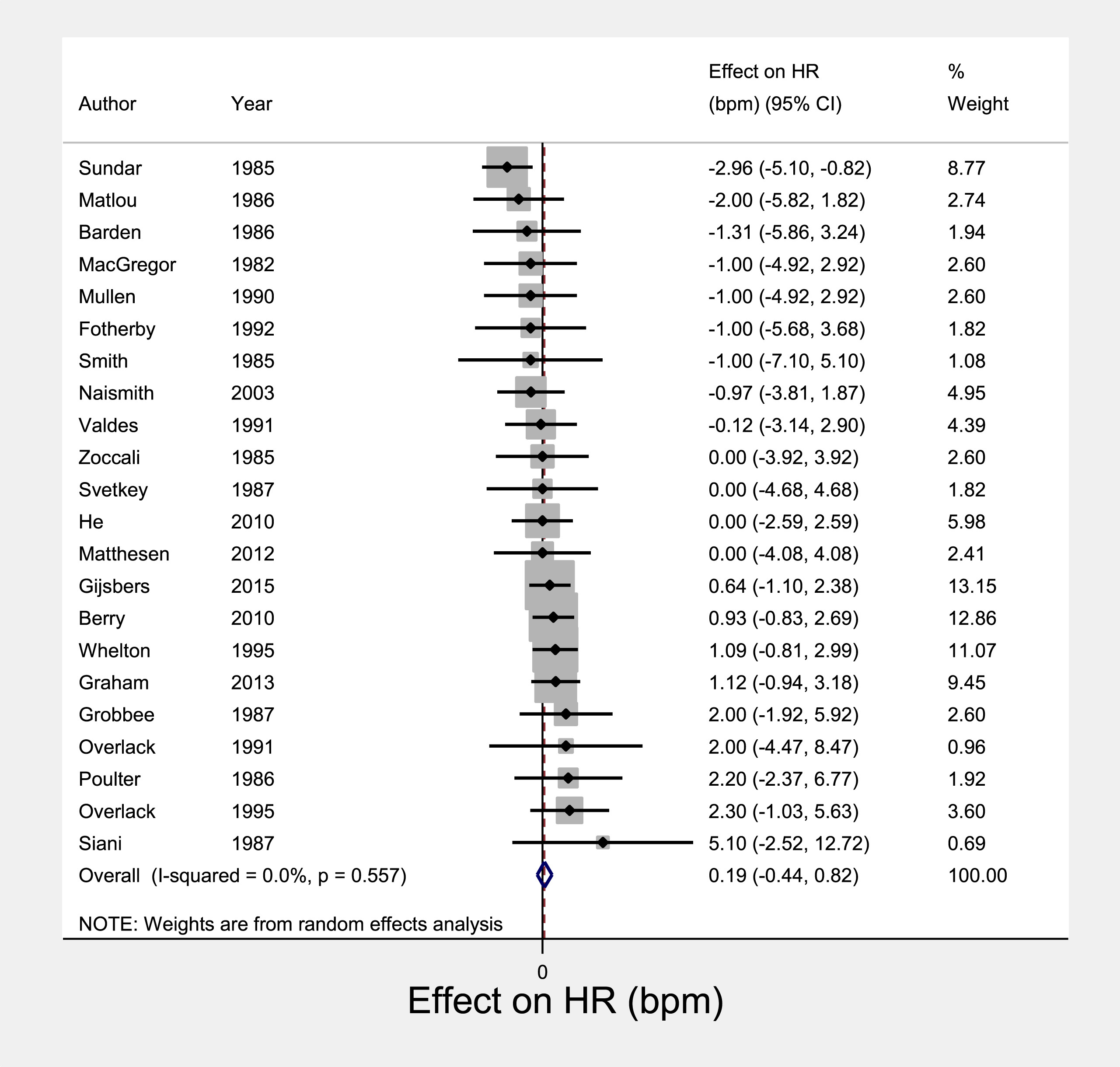Nutrientsfor Stable Heart Rate
A normal resting heart rate typically ranges between 60 and 100 beats per minute. Magnesium and potassium both work to keep your heart beating steadily and consistently within that range.
Potassium can be found in foods like legumes and beans, dried fruits, squash, root vegetables and bananas. It’s present in small amounts most meat and fish products too. Most people need to consume between 2,600 and 3,400 milligrams of this nutrient on a daily basis.
Magnesium can be found in legumes and beans as well. It’s easy to consume through fiber-rich, plant-based foods like nuts, spinach and avocado. However, you can also find it in animal products in small amounts. Most people need to consume between 310 and 420 milligrams of this mineral each day.
Insufficient amounts of both potassium and magnesium can cause heart issues, particularly cardiac arrhythmias. According to the American Heart Association, arrhythmias come in many different types. The term can refer to your heart beating too quickly, too slowly or erratically. Conditions like tachycardia, bradycardia, atrial fibrillation and ventricular fibrillation are all types of arrhythmias that can occur because of nutrient insufficiency.
Easy Things You Can Do To Lower Your Blood Pressure
High blood pressure is dangerous. It can lead to many health problems, including heart attack, stroke, heart failure, angina, coronary artery disease, peripheral artery disease, kidney disease, vision loss, sexual dysfunction and more.
Fortunately, high blood pressure can often be prevented or controlled.
Here are some easy things you can do to lower your blood pressure or help prevent high blood pressure in the first place.
Set small, easily attainable goals, and when you reach them, set bigger ones. Step by step, you will take control of your health and your blood pressure.
Also Read : What Can Cause Inaccurate Blood Test Results
Potassium is present in all fruits, vegetables, meat and fish. Foods with high potassium concentrations include yam, parsley, dried apricots, milk, chocolate, all nuts , potatoes, bamboo shoots, bananas, avocados, coconut water, soybeans, and bran.
Did you know? Not getting enough sleep is linked to Heart attack, Depression, High Blood Pressure, Obesity and Diabetes.
The USDA lists tomato paste, orange juice, beet greens, white beans, potatoes, plantains, bananas, apricots, and many other dietary sources of potassium, ranked in descending order according to potassium content. A day’s worth of potassium is in 5 plantains or 11 bananas.
Diets low in potassium can lead to hypertension and hypokalemia.
You May Like: What Is My Target Heart Rate
How Does Hyperkalemia Affect The Body
Potassium is a mineral that is crucial for normal cell function in the body, including heart muscle cells. The body gets potassium through foods.
The right level of potassium is key. The kidneys are primarily responsible for maintaining the bodys total potassium content by balancing potassium intake with potassium excretion. If intake of potassium far outweighs the kidneys ability to remove it, or if kidney function decreases, there can be too much potassium and hyperkalemia may occur.
Potassium and sodium concentrations play a crucial role in electric signal functioning of the hearts middle thick muscle layer, known as the myocardium. An above normal level of potassium can interfere with proper electric signals in that muscle layer and lead to different types of heart arrhythmias.
Can It Be Prevented

Dietary changes can help prevent and treat high potassium levels. Talk to your doctor to understand any risk you might have for hyperkalemia. Your doctor may recommend foods that you may need to limit or avoid. These may include:
- asparagus, avocados, potatoes, tomatoes or tomato sauce, winter squash, pumpkin, cooked spinach
- oranges and orange juice, nectarines, kiwifruit, bananas, cantaloupe, honeydew, prunes and raisins or other dried fruit.
If you are on a low-salt diet, avoid taking salt substitutes.
Don’t Miss: Can Diabetes Cause Heart Palpitations
Symptoms Of Low Potassium
2 ).
Potassium is an essential mineral that has many roles in your body. For example, it helps regulate muscle contractions, maintain healthy nerve function, and regulate fluid balance .
Despite its importance, its estimated that most adults dont meet their daily needs. This is likely due to the Western-style diet, which favors processed foods over whole plant foods that are high in potassium such as fruits, vegetables, beans, and nuts .
Still, hypokalemia is rarely caused by dietary deficiency alone. It can be caused by a number of factors, including (
- some medical conditions, like kidney failure
Keep reading to learn more about potassium deficiency, including its causes and symptoms.
7 ):
- Chronic diarrhea. This can be caused by the overuse of diuretics or laxatives, irritable bowel disease, or infections.
- Certain medications. These may include beta 2-agonists, theophylline, insulin, diuretics, corticosteroids, and antimicrobials.
- Eating disorders. These include anorexia nervosa, purging, or laxative abuse.
- Under eating or malnutrition
- Hyperaldosteronism. This condition is characterized by excess aldosterone, a steroid hormone, in the blood.
- Kidney disorders. These include Bartter syndrome, Gitelman syndrome, and Fanconi syndrome.
- Hypomagnesemia. This is also called low magnesium levels.
- Refeeding syndrome
- Overconsumption of licorice
- Excessive sweating
If youve experienced chronic fluid loss or have misused any medications, seek immediate medical attention.
What Supplements Have An Effect On Heart Rate
Supplements for heart health can work to regulate your blood pressure and heart rate. However, you may experience negative side effects, like arrhythmias, by taking large amounts of these supplements. Even essential vitamins and minerals can be harmful when consumed in excess.
Video of the Day
Tip
Many supplements for heart health can alter the heart rate. These include minerals like magnesium and potassium, and vitamins like vitamin D.
Read more:43 Supplements Exposed: Which Ones to Consider, Which Ones to Avoid
Don’t Miss: Are Heart Attacks Common In Your 20s
What Are The Complications Of High Potassium
Having too much potassium in your blood can be dangerous. Potassium affects the way your heart’s muscles work. When you have too much potassium, your heart may beat irregularly, which in the worst cases can cause heart attack.
If you think you are having a heart attack, call 911 for emergency help.
Some of the most common signs of heart attack are:
- Feelings of pressure, pain, or squeezing in your chest or arms
- Stomach pain or nausea
Potassium In The Food Supply And Potassium Intake
Most Americans eat too little potassium and too much sodium. Some good sources of potassium include bananas, oranges and melons, cooked spinach and broccoli, and potatoes and sweet potatoes.
The majority of sodium in our diets comes from packaged and restaurant food as a result of food processing. Even foods that may not taste salty can be major sources of sodium. Foods with only moderate amounts of sodium, such as bread, can be major sources of sodium because theyre eaten so frequently. Americans consume more than 3,400 milligrams of sodium each day, on average. This is well above the 2020-2025 Dietary Guidelines for Americans recommendation.
You can find potassium and sodium content, and percent Daily Values on Nutrition Facts Labels for packaged foods.
You May Like: End Stage Of Congestive Heart Failure
How Accurate Are Electrocardiograms
An electrocardiogram is a representation of the electrical activity of the heart in multiple views. It records about 12 seconds and patients with palpitations may or may not have an abnormality on their EKG during that time. That is why many physicians use ambulatory EKGs or Holter monitors to try to make a diagnosis.
The other benefit of the standard EKG is that it may reveal evidence of other things that may be wrong with the heart such as an old heart attack or other electrical abnormalities that may provide important clues to an underlying diagnosis that the palpitations represent. So an electrocardiogram is a valuable part of a heart evaluation, but is not particularly sensitive for detecting heart rhythm abnormalities.
How Can Potassium Chloride Decrease Heart Rate
Ask U.S. doctors your own question and get educational, text answers â it’s anonymous and free!
Ask U.S. doctors your own question and get educational, text answers â it’s anonymous and free!
HealthTap doctors are based in the U.S., board certified, and available by text or video.
Also Check: Symptoms Congestive Heart Failure
Hyperkalemia And Its Causes
An excessive buildup of potassium in they body is referred to medically as hyperkalemia. Healthy people should not worry about consuming too much potassium, because their kidneys can filter out the excess. Hyperkalemia occurs when the kidneys are not functioning properly and are unable to do so. Hemolytic anemia, severe burns, tumors, and intestinal bleeding can also cause hyperkalemia. This is due to metabolic acidosis, where potassium is transported from the inside of cells to the fluid outside of cells. Often, there are no symptoms involved with hyperkalemia, but you may experience nausea a slow, weak, or irregular pulse or fainting.
What Is High Potassium Or Hyperkalemia

Everyone needs potassium to survive. Potassium is a mineral and an electrolyte. It helps your muscles work, including the muscles that control your heartbeat and breathing. Potassium comes from the food you eat.
Your body uses the potassium it needs. Your kidneys remove the extra potassium from your blood. When you have kidney disease, your kidneys cannot remove extra potassium in the right way, and too much potassium can stay in your blood.
When you have too much potassium in your blood, it is called hyperkalemia, or high potassium. Having too much potassium in your blood can be dangerous. Hyperkalemia can even cause a heart attack or death! Unfortunately, many people do not feel symptoms of hyperkalemia until it is too late and their heart health worsens.
Manage your potassium levels with diet and treatment. Visit Kidney Kitchen® for kidney-friendly recipes, nutrient information, and guides to help you cook and shop.
Also Check: How To Lower Resting Heart Rate Immediately
Distribution Away From Extracellular Fluid
- In addition to alkalosis, other factors can cause transient shifting of potassium into cells, presumably by stimulation of the Na+/K+ pump. These hormones and medications include insulin, epinephrine, and other beta agonists , and xanthines .Stimulants can also cause hypokalemia by stimulatingbeta-2 receptors.
- Rare hereditary defects of muscular ion channels and transporters that cause hypokalemic periodic paralysis can precipitate occasional attacks of severe hypokalemia and muscle weakness. These defects cause a heightened sensitivity to the normal changes in potassium produced by catecholamines and/or insulin and/or thyroid hormone, which lead to movement of potassium from the extracellular fluid into the muscle cells.
Data Extraction And Risk Of Bias Assessment
J Hum Hypertens.J Hum Hypertens.
Ann Epidemiol.
- Chowienczyk P.J.
Br J Nutr.
J Hum Hypertens.
Scand J Clin Lab Investig.Lancet.Br Med J .J Assoc Physicians India.J Hypertens.J Hypertens.J Hypertens.East Afr Med J.J Hypertens.Br Med J .Hypertension.J Hum Hypertens.
Klin Wochenschr.J Hypertens.Dtsch Med Wochenschr.Br J Nutr.
Hypertension.
Klin Wochenschr.Br Med J .Hypertension.Br J Nutr.Hypertension.East Afr Med J.
BMJ.
Read Also: What Is The Normal Heart Rate Per Minute
What Happens To Your Heart When You Have Hyperkalemia
Because potassium plays such an important role in maintaining a normal heart rhythm, hyperkalemia can cause dangerous, irregular heart rhythms. It may also result in bradycardia an abnormally slow heart rate ventricular tachycardia, or ventricular fibrillation.
What should my potassium level be in my blood?
A healthy potassium blood level is between 3.5 and 5.0 milliequivalents per liter . Staying within this range supports electric signaling in the heart. It helps your muscles function properly, including those that control your heartbeat and breathing. Having too much potassium in your blood is known as hyperkalemia.
Which is more sensitive to potassium in the heart?
The electrical stability of the heart is more sensitive to the extracellular than to the intracellular potassium concentration. During exercise, extracellular potassium varies rapidly. Catecholamines also modulate the plasma potassium concentration. Hypokalaemia of any cause can precipitate arrhythmias.
How Can I Prevent Hyperkalemia
If youve had hyperkalemia or are at risk for it, a low-potassium diet is the best way to protect your health. You may need to cut back on, or completely cut out, certain high-potassium foods, such as:
- Citrus fruits and juices, such as oranges and grapefruit.
- Cooked spinach.
- Melons like honeydew and cantaloupe.
- Prunes, raisins and other dried fruits.
- Pumpkin and winter squash.
Also Check: Can Ibs Cause Heart Palpitations
Heart Palpitations And Irregular Heartbeat
One very noticeable symptom of potassium deficiency is heart palpitations. It feels like your heart skips a beat, or sometimes several beats, with a very obvious thump in your chest or a âflutteryâ feeling. The good news is that it isnât usually harmful on its own several stressful situations can cause heart palpitations, including job pressure, smoking too much, or a sudden stressful occurrence. It is also a common side effect of many medications. Your doctor may order an EKG to determine the cause of your heart palpitations.Overall stress levels raise the cortisone levels of your body a proper amount of potassium can help your adrenal system regulate itself more effectively. Itâs also one of the electrolytes responsible for regulating blood pressure and keeping your heart beating in a regular rhythm.
Hypokalemia Diagnosis And Treatment
If your doctor suspects you have low potassium levels, he or she will first obtain tests of your blood to measure the amount of potassium circulating in your body. Normal blood potassium levels range from 3.6 to 5.2 millimoles per liter of blood. Your doctor also may obtain an ECG for hypokalemia to look for heart arrhythmias.
A serum potassium level below 2.5 mmol/L is a medical emergency because it can lead to cardiac arrest and death. The patient will be treated in the hospital with immediate infusions of potassium through an intravenous line, along with potential other treatments to stabilize the heart rhythm.
For low potassium levels that are not considered critical, your doctor may recommend other hypokalemia treatments, including:
-
Changing your prescription medicine for high blood pressure, heart failure, or kidney disease to a drug that helps your body retain more potassium
-
Increasing your consumption of potassium-rich foods, such as bananas, sweet potatoes, poultry, and tomatoes
-
Potassium supplements, which normally should be taken only on the advice of a physician
-
Using table salt substitute products that contain mostly potassium instead of sodium
Recommended Reading: How Many Heart Palpitations Are Too Many
Does High Potassium Increase Heart Rate
Having too much potassium in your blood can be dangerous. Potassium affects the way your hearts muscles work. When you have too much potassium, your heart may beat irregularly, which in the worst cases, can cause heart attack.
Does high potassium cause low pulse rate?
More serious symptoms of hyperkalemia can include a decreased in heart rate and weak pulse. Severe hyperkalemia can lead to heart stoppage and death.
Does potassium reduce heart rate?
Regulated heartbeat: Potassium enables your heart to beat in a healthy way. So, if you have rhythm problems, potassium may be key. Your doctor can advise you on that.
How Much Potassium Is Good For Your Heart Health

Excess or high potassium intake can damage your heart and lead to an irregular heartbeat. Common symptoms include
-
Fluttering sensation in your chest
-
“Racing” or “pounding” heartbeats.
But keep this in mind, you can get too much of a good thing. Getting too much potassium can cause a heart attack, weakness or muscle paralysis .
The recommended daily amount of potassium intake is 4,700 milligrams. But you should talk to your doctor about the amount of potassium that is right for you.
Read Also: How To Calculate Heart Rate On Ecg Strip
Control Blood Pressure With High
The number of American adults with hypertension, or high blood pressure, is estimated to be 75 million that’s 32 percent of the population and climbing, according to the Centers for Disease Control and Prevention. Elevated blood pressure is a risk factor heart attack, stroke, and heart failure the leading causes of death in the United States today. It’s also a cause of atrial fibrillation. Because of this, controlling blood pressure is on many people’s lists of important things to do each day.
Normal blood pressure should be at or below 120/80 mmHg. Prehypertension describes blood pressure between normal and high, up to 139/89. High blood pressure is over 140/90 mmHg. Work toward your blood pressure goal by including plenty of potassium-rich foods like potatoes, soybeans, bananas, and oranges in your diet.
How Is Hyperkalemia Treated
If your potassium level is very high, or if there are dangerous indications such as changes in an electrocardiogram, emergency treatment is needed. That may involve supplying calcium to the body through an IV to treat the effects on muscles and the heart or administering glucose and insulin through an IV to decrease potassium levels long enough to correct the cause. There are also medicines that help remove the potassium from your intestines and in some cases, a diuretic may be given.
Emergency treatment may also include kidney dialysis if kidney function is deteriorating medication to help remove potassium from the intestines before absorption sodium bicarbonate if acidosis is the cause and water pills, or diuretics.
A doctor may also advise stopping or reducing potassium supplements and stopping or changing the doses of certain medicines for heart disease and high blood pressure. Always follow your health provider’s instructions about taking or stopping medicines.
You May Like: Heart Attacks In Teens
